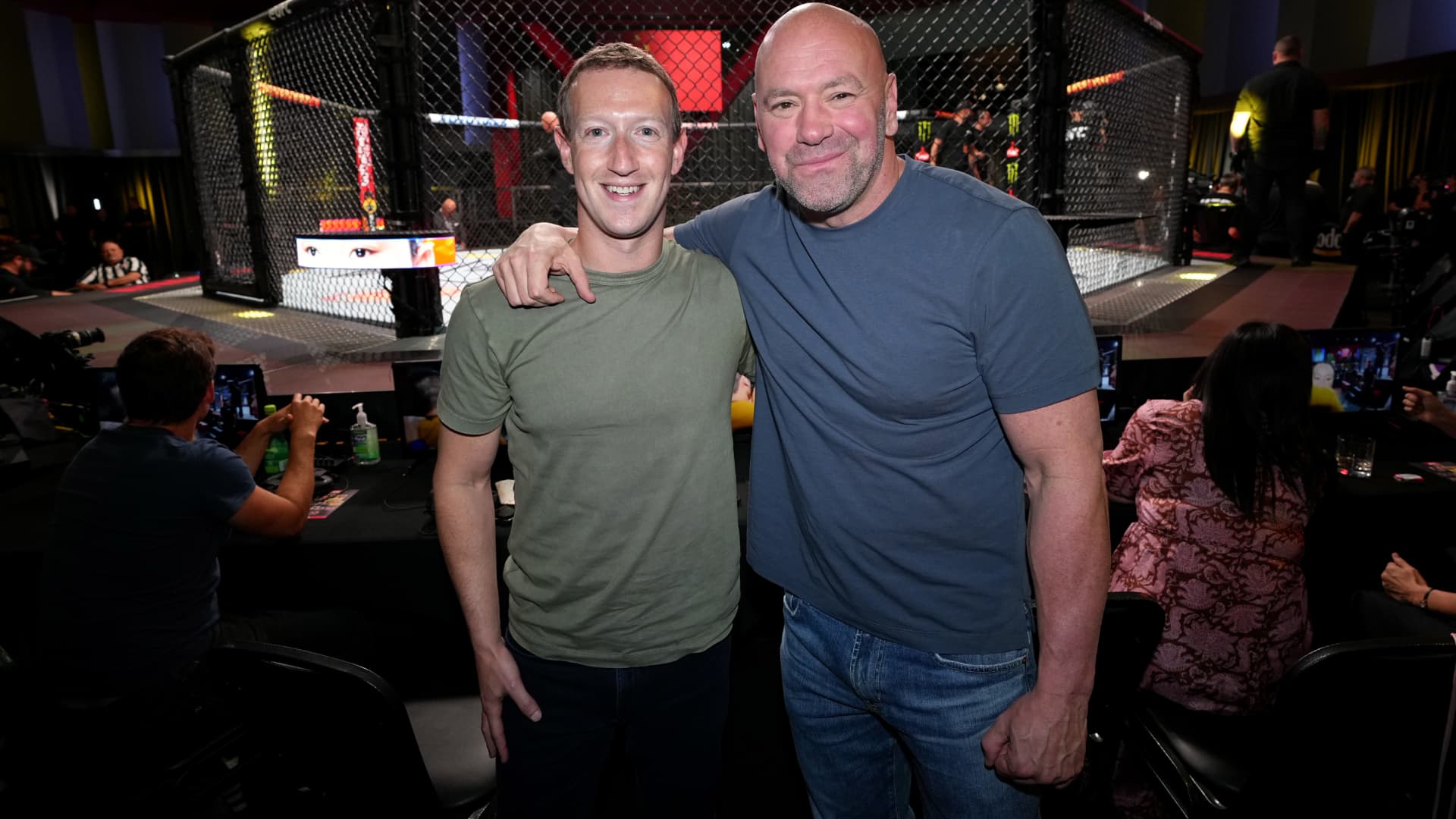Inside the Power Play: Dana White’s Strategic Move to Meta’s Boardroom
In a surprising turn of events, Dana White, the president of the Ultimate Fighting Championship (UFC), has joined the board of directors at Meta, the tech company formerly known as Facebook. This strategic move comes just weeks before a pivotal moment in American politics, as Donald Trump prepares for his presidency. The implications of this unexpected alliance raise numerous questions about the future of both the UFC and Meta, as well as the broader dynamics between sports and social media.
The Significance of Dana White’s Appointment
White’s entry into Meta’s boardroom signals a merging of interests between the sports and tech industries. As a prominent figure in sports entertainment, White has revolutionized mixed martial arts and taken the UFC to unprecedented heights. His appointment can be seen as a strategic effort by Meta to bolster its presence in the sports sector, particularly as it seeks to appeal to younger audiences who are increasingly consuming sports content through social media platforms.
With the UFC’s growing popularity and the significant engagement it generates on platforms like Instagram and Facebook, White’s experience could prove invaluable. His insights into fan engagement, brand building, and live event promotion could help Meta design better strategies to attract and retain users, while simultaneously enhancing the UFC’s digital footprint.
The Intersection of Sports and Social Media
The relationship between sports and social media has evolved dramatically in recent years. Athletes now have the ability to communicate directly with fans, transcending traditional media outlets. This shift has created a powerful platform for brand endorsements and personal storytelling. White’s position on Meta’s board could facilitate new initiatives that leverage this intersection, potentially leading to:
- Enhanced Content Creation: Collaborations between Meta and the UFC could lead to exclusive behind-the-scenes content, athlete interviews, and live-streamed events that engage fans in real-time.
- Targeted Advertising: White’s understanding of the UFC’s demographic could aid Meta in refining its advertising strategies, ensuring that promotions resonate with the intended audience.
- Innovative Fan Experiences: The potential for augmented reality (AR) and virtual reality (VR) experiences could be realized, allowing fans to engage with events in unprecedented ways.
The Broader Implications for the UFC
For the UFC, White’s strategic move could open new avenues for growth and innovation. As the organization continues to expand globally, White’s insights from the tech industry might help the UFC navigate challenges associated with international markets and digital content distribution.
Moreover, White’s presence on Meta’s board could enhance the UFC’s ability to monetize its content. The UFC has already made significant strides in this area, with lucrative broadcasting deals and a growing pay-per-view model. However, as the digital landscape continues to evolve, new revenue streams will be essential. White’s input could help the UFC harness Meta’s vast resources and technological capabilities.
Potential Challenges and Criticisms
Despite the promising possibilities, White’s appointment is not without its challenges and criticisms. Some observers have raised concerns about potential conflicts of interest, particularly regarding content moderation on Meta’s platforms. With the UFC’s athletes often engaging in controversial behavior, how will Meta manage the balance between freedom of expression and community standards?
Additionally, there are questions about White’s ability to juggle his responsibilities at the UFC while serving on Meta’s board. Critics argue that his focus might be divided, potentially impacting the UFC’s operations. However, White has demonstrated a remarkable ability to multitask throughout his career, which might mitigate these concerns.
What Lies Ahead for Meta and the UFC?
As Dana White steps into this new role, the future holds exciting prospects for both Meta and the UFC. The tech giant is poised to explore innovative ways to engage younger audiences, while the UFC stands to benefit from enhanced visibility and digital integration. This strategic collaboration could reshape the landscape of sports and social media for years to come.
Looking ahead, we can anticipate several key developments:
- Increased Integration of Live Sports: Meta may look to incorporate more live sports events, potentially hosting UFC fights on its platforms, allowing users to watch and interact in real-time.
- Collaborative Marketing Campaigns: Expect to see joint marketing initiatives that leverage both White’s brand and Meta’s vast reach, aimed at increasing visibility for both entities.
- Enhanced User Engagement: With White’s expertise, Meta could develop new features that allow fans to connect more deeply with their favorite fighters and sports events.
Conclusion: A New Era of Collaboration
In conclusion, Dana White’s strategic move to Meta’s boardroom represents a significant shift in the relationship between sports and technology. As both the UFC and Meta navigate the complexities of the digital age, this partnership holds the potential to redefine how fans experience sports. The implications of this collaboration could ripple across the industry, paving the way for a new era of engagement, innovation, and growth.
As we watch this development unfold, one thing is clear: the intersection of sports and social media is becoming increasingly vital, and with leaders like Dana White at the helm, the future looks promising for both the UFC and Meta.
See more Business Focus Insider Team

